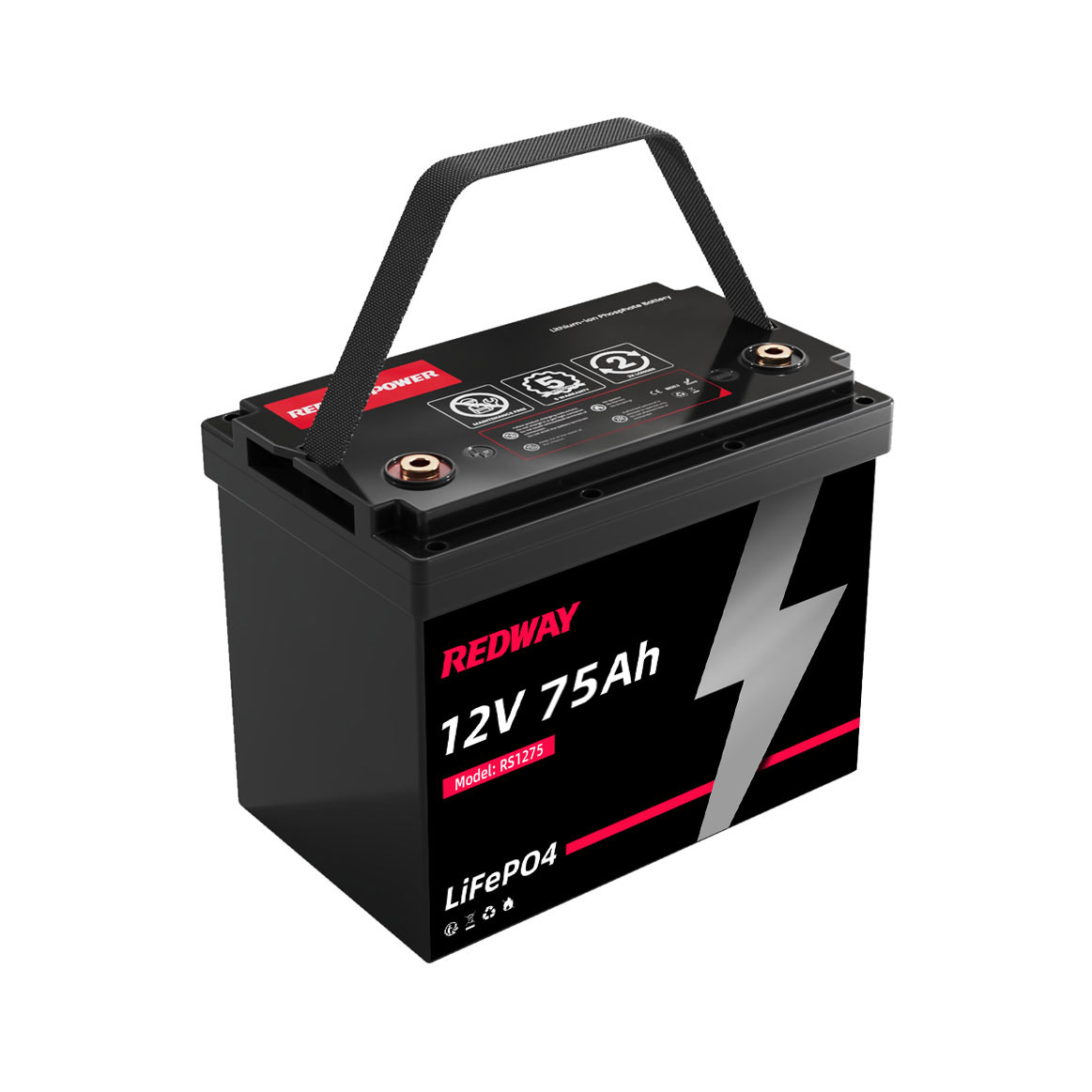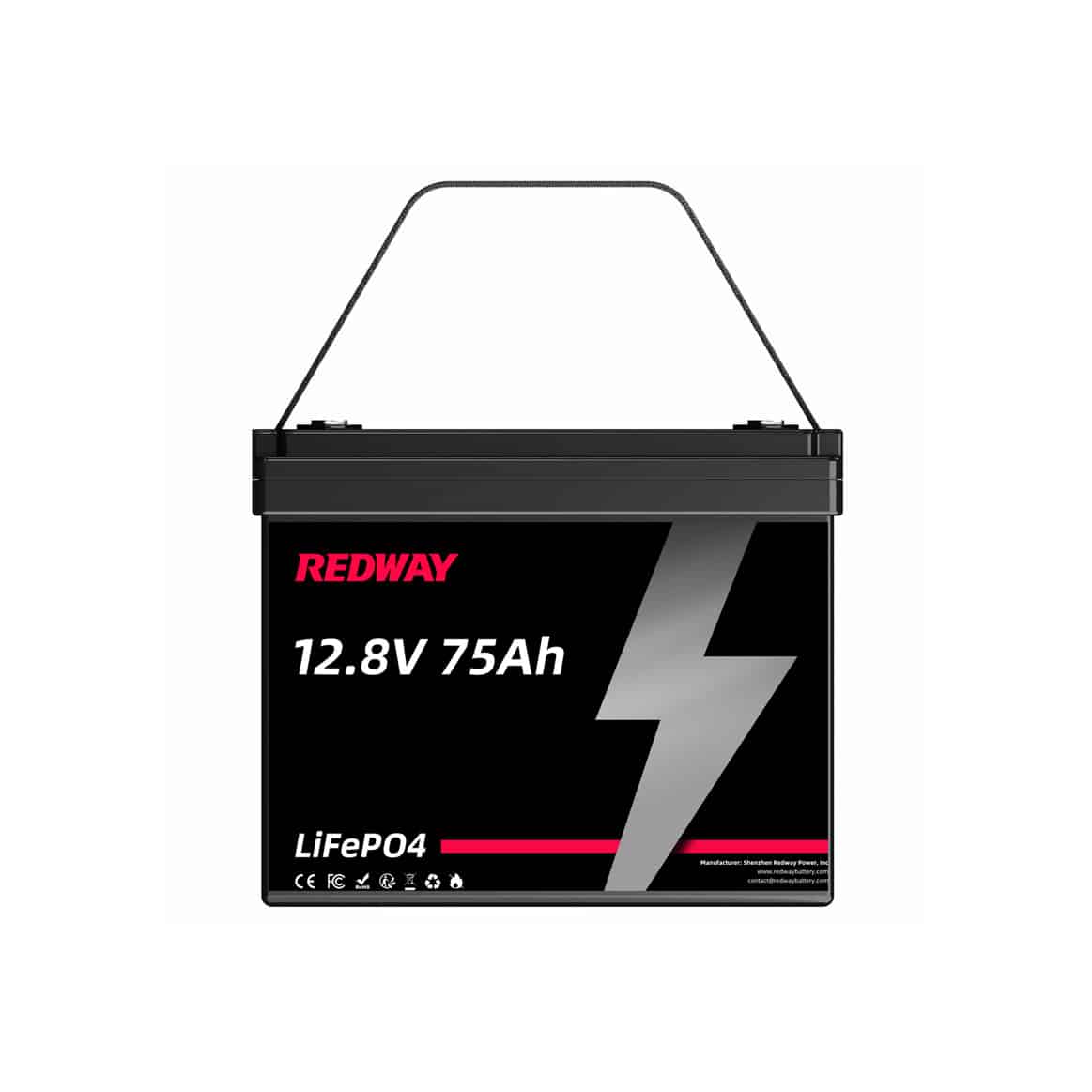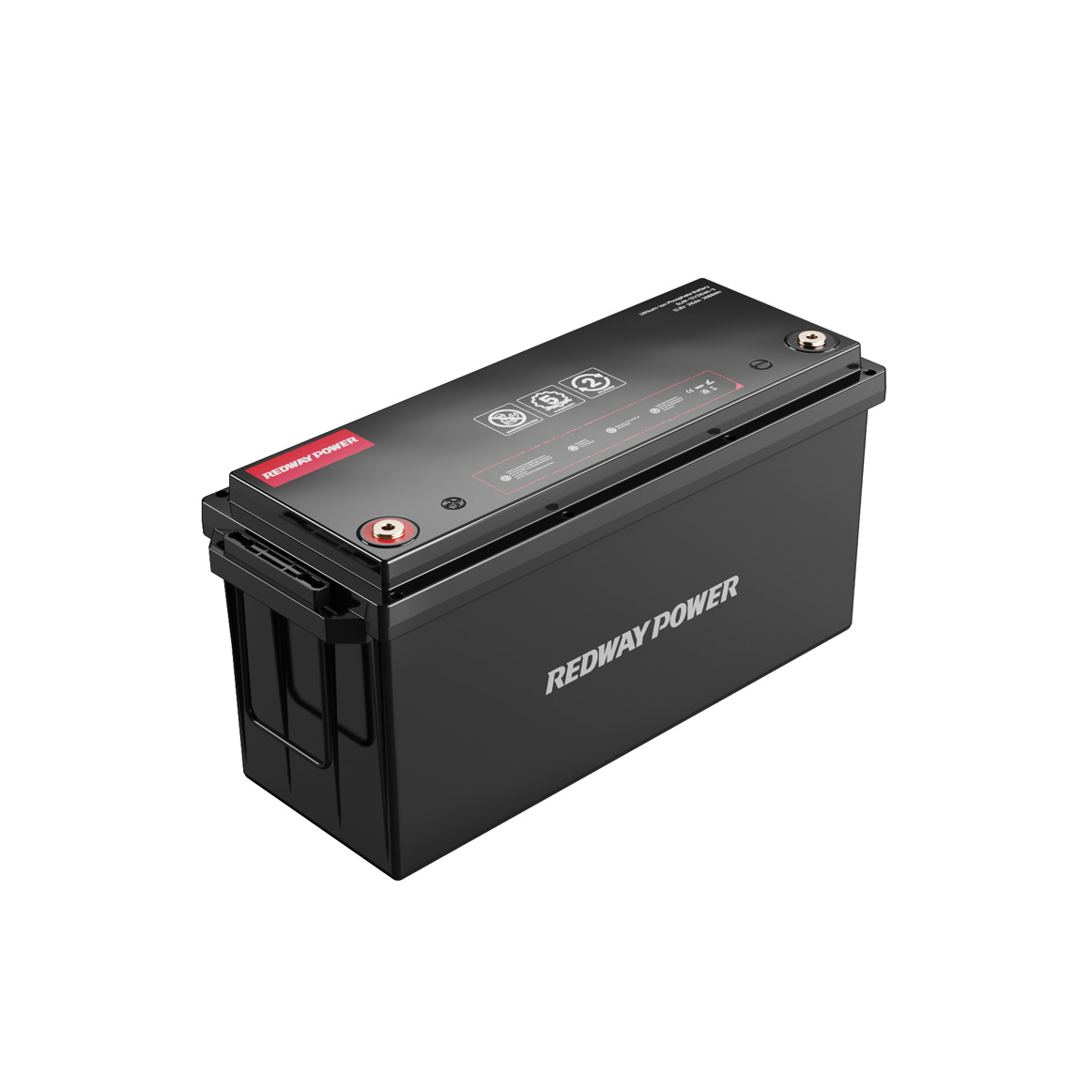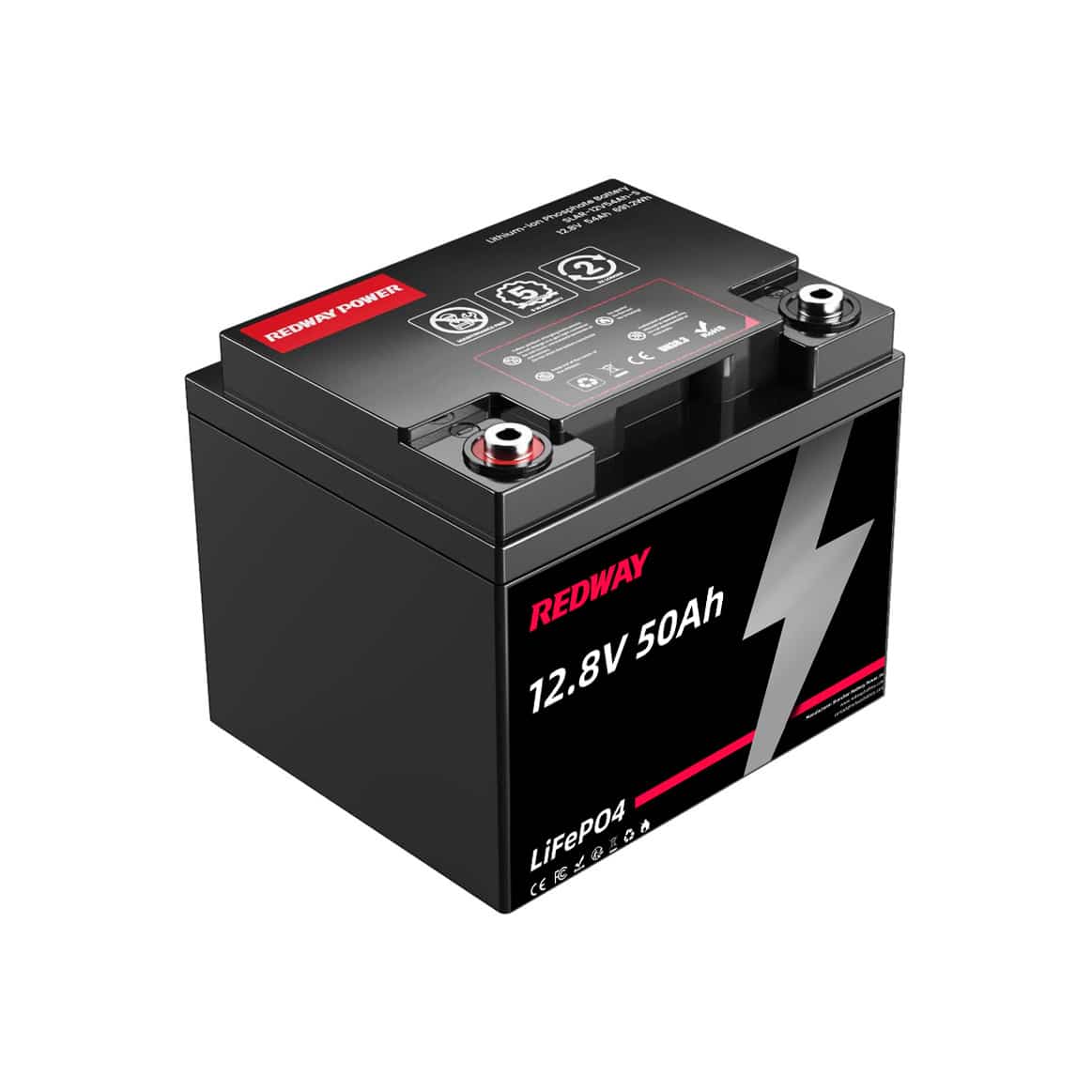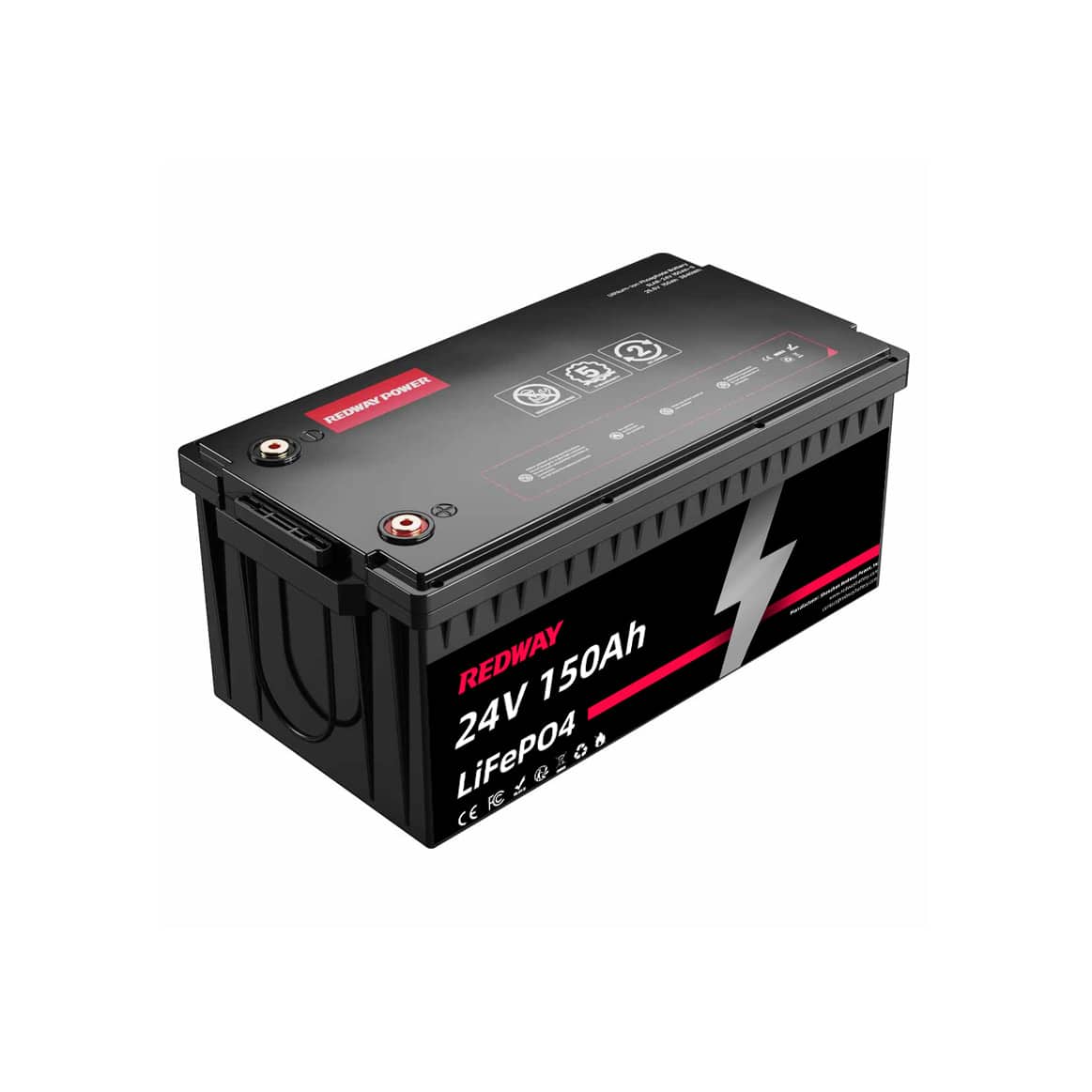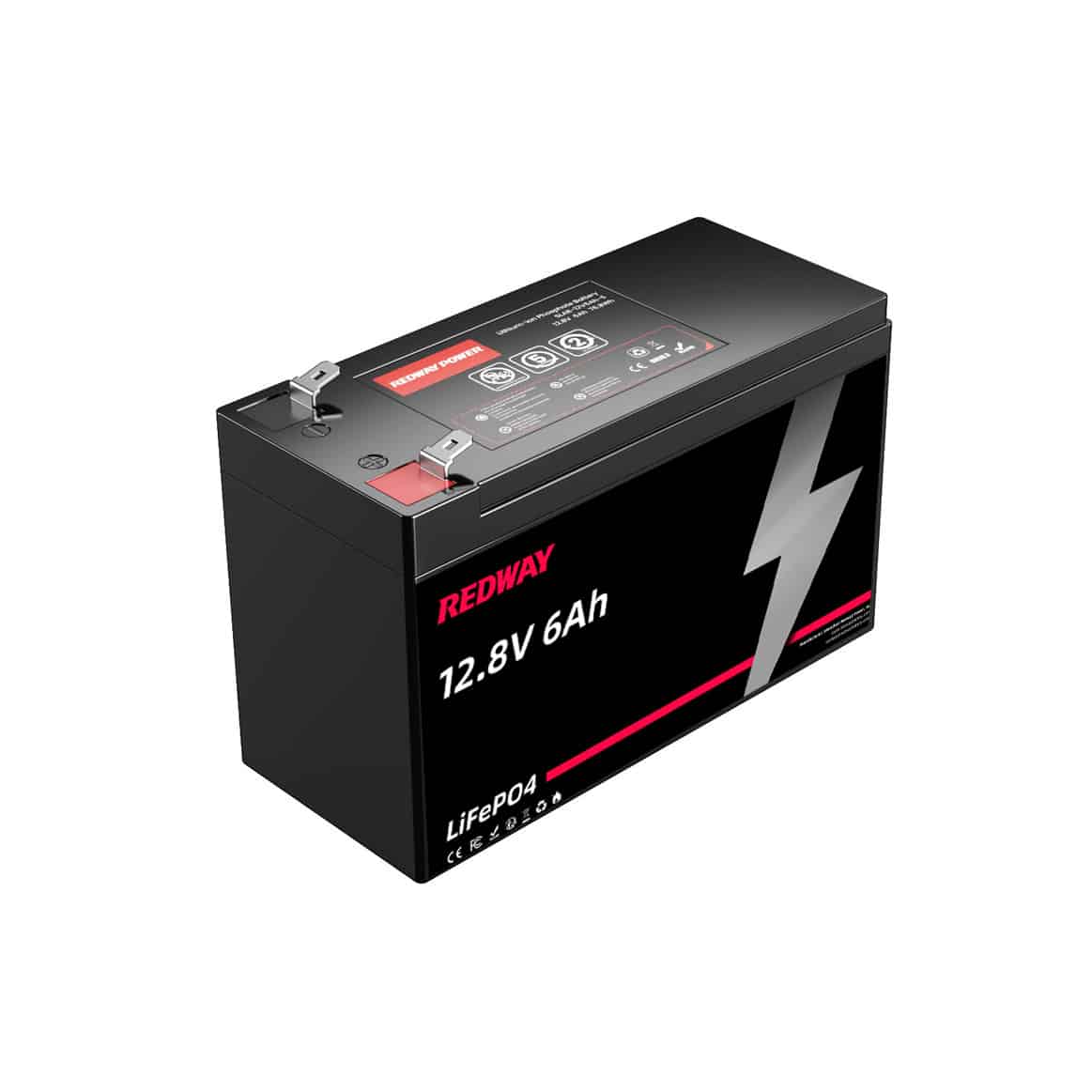Description
The Redway 12.8V 75Ah Lithium Battery is a powerful and reliable energy storage solution designed for a wide range of applications including solar systems, RVs, marine vessels, and backup power. Built with advanced LiFePO4 (Lithium Iron Phosphate) technology, this battery delivers superior safety, longevity, and efficiency.
With a nominal capacity of 75Ah and an energy output of 960Wh, it supports a maximum continuous charge and discharge current of 75A, ensuring stable and efficient power delivery. The battery features a compact design with dimensions of 260 x 168 x 210 mm (10.2 x 6.6 x 8.3 inches), weighing only 6 kg (13 lbs), making it easy to install and transport.
Protected by a robust JBD/DALY Battery Management System (BMS), the Redway battery safeguards against overcharge, overheating, and short circuits for reliable and safe operation. Its durable ABS shell with an IP65 rating ensures resistance to dust and water, suitable for harsh environments.
Designed for long-term use, it offers over 5000 cycles at 80% Depth of Discharge and a design life of up to 10 years. Optional upgrades include Bluetooth monitoring, GPS tracking, LCD display, and more, allowing customization for various needs. Certified to meet international safety standards like UL 1642, IEC 62619, CE, and UN38.3, the Redway 12.8V 75Ah battery is a trusted choice for efficient and safe power solutions.
Know More
The 12V 75Ah Lithium Battery (BCI Group 24) delivers 960Wh of energy, over 5,000 cycles, and advanced BMS safety in a lightweight, IP65-rated case. Redway Battery’s OEM/ODM expertise, rapid delivery, and BCI-standard compatibility make it the premier choice for RV, marine, solar, and industrial storage at scale.
What Are the Key Features and Technical Specifications of the 12V 75Ah Lithium Battery?
The 12V 75Ah LiFePO4 battery features a nominal voltage of 12.8V, 75Ah capacity, and 960Wh energy output. It weighs only 6 kg, supports 75A continuous charge/discharge, and operates from -20°C to 65°C. The Group 24 size (260 x 168 x 210 mm) ensures universal fit and easy drop-in replacement for lead-acid batteries.
Chart: Key Specifications of 12V 75Ah LiFePO4 (Group 24)
| Feature |
Value |
| Nominal Voltage |
12.8V |
| Capacity |
75Ah |
| Energy |
960Wh |
| Cycle Life |
>5,000 cycles @ 80% DoD |
| Operating Temp |
-20°C to 65°C |
| Weight |
6 kg |
| Max Discharge Current |
75A |
| Case |
Group 24 (BCI), ABS, IP65 |
| Certifications |
UL 1642, IEC 62619, CE, UN38.3, MSDS |
How Does the 12V 75Ah Lithium Battery Ensure Safety and Reliability?
Equipped with a JBD or DALY smart BMS, this battery provides real-time protection against overcharge, overdischarge, overcurrent, and thermal extremes. The robust ABS shell is IP65-rated for dust and water resistance, ensuring safe operation in harsh marine, RV, and outdoor environments.
Which Applications Are Best Suited for the 12V 75Ah Lithium Battery (Group 24)?
This battery excels in RVs, marine vessels, off-grid solar systems, backup power, and mobility equipment. Its deep-cycle capability, high discharge current, and maintenance-free design make it ideal for both mobile and stationary energy storage needs.
Why Is LiFePO4 Chemistry Preferred for Group 24 OEM Batteries?
LiFePO4 chemistry offers superior thermal stability, long cycle life, and high safety compared to lead-acid and other lithium-ion types. It resists thermal runaway, supports deep cycling, and maintains over 80% capacity after thousands of cycles, making it the top choice for demanding and mission-critical applications.
How Does Redway Battery Support OEM, ODM, and Wholesale Manufacturing?
Redway Battery provides full OEM/ODM services, allowing customization of voltage, capacity, BMS features, case design, and branding. With advanced manufacturing in Dongguan and Huizhou, Redway delivers flexible solutions, fast lead times, and global logistics for wholesale and B2B clients.
What Certifications and Standards Does the 12V 75Ah Lithium Battery Meet?
The battery is certified to UL 1642, IEC 62619, CE, UN38.3, and MSDS standards, ensuring compliance with global safety, transport, and environmental requirements. These certifications guarantee reliability, safe installation, and acceptance in international markets.
How Does the 12V 75Ah Lithium Battery Compare to Lead-Acid and Other Lithium Batteries?
Compared to lead-acid, the 12V 75Ah LiFePO4 battery is 60–70% lighter, lasts 5–10 times longer, and delivers higher energy density. It is maintenance-free, supports fast charging, and offers a much lower total cost of ownership.
Chart: LiFePO4 (Group 24) vs. Lead-Acid Battery Comparison
| Feature |
LiFePO4 (Group 24) |
Lead-Acid (Group 24) |
| Cycle Life |
>5,000 cycles |
400–800 cycles |
| Weight |
6 kg |
23–30 kg |
| Maintenance |
None |
Regular |
| Depth of Discharge |
80% |
50% |
| Energy Density |
High |
Low |
Can the 12V 75Ah Lithium Battery Be Used in Series or Parallel for Larger Systems?
Yes, up to six batteries can be connected in parallel for higher capacity, or four in series for 48V systems. This modularity supports scalable energy storage for solar, backup, and mobile applications, enabling configurations up to 2880Wh or more.
What Customization Options Are Available for OEMs?
OEMs can customize voltage, capacity, BMS integration, casing materials, terminal types, and features like Bluetooth, self-heating, LCD display, and active balancing. Redway Battery offers silkscreen, label, and laser logo options for branding and full technical support for integration.
How Do You Evaluate a Reliable 12V 75Ah Battery Supplier?
Look for certifications, production capacity, customer reviews, and warranty policies. Redway Battery stands out with international certifications, strict quality control, a 3-year warranty, and a history of positive feedback from global clients.
Redway Battery Expert Views
“Our 12V 75Ah LiFePO4 Group 24 battery is engineered for maximum reliability and flexibility. With advanced BMS, robust construction, and full OEM/ODM support, Redway Battery delivers dependable solutions for RV, marine, solar, and off-grid energy storage worldwide.”
— Dr. Mei Zhang, Senior Engineer, Redway Battery
Conclusion
The 12V 75Ah Lithium Battery (BCI Group 24) stands out for its safety, long cycle life, and modular design. Redway Battery’s OEM expertise, global certifications, and BCI-standard compatibility make it the premier choice for wholesale, custom, and industrial energy storage needs.
FAQs
Q: What is the cycle life of the 12V 75Ah Lithium battery?
A: Over 5,000 cycles at 80% DoD, with a 10-year design life.
Q: Can the battery be customized for specific projects?
A: Yes, Redway Battery offers OEM/ODM services for capacity, case, and branding.
Q: Is the 12V 75Ah battery compatible with solar and marine systems?
A: Yes, it integrates seamlessly with solar, marine, RV, and off-grid setups.
Q: What safety features are included?
A: Advanced BMS, IP65 casing, fire-resistant materials, and full short-circuit protection.
Q: How quickly can orders be delivered?
A: Standard delivery is 20–25 days for bulk orders, with global shipping options.


